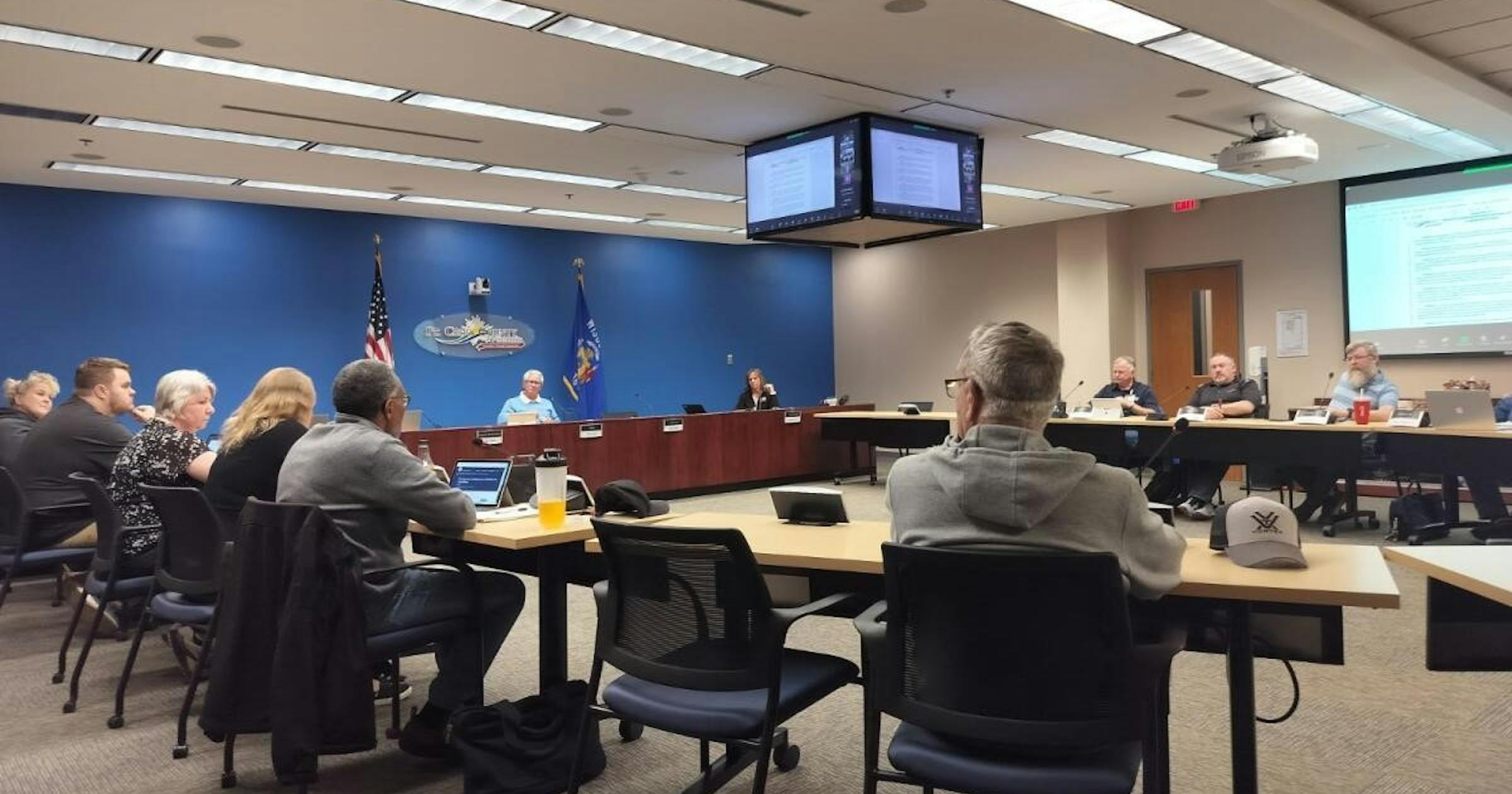A bill that would allow state agencies to hire private accountants — and bypass the state auditor’s office — to conduct annual audits is in limbo in the Iowa House.
Senate File 2311, which passed the Senate 31-16 last month, hit a setback Tuesday. A House subcommittee voted 2-1 to advance the bill without recommendation to the full House State Government Committee, leaving it to the chair of the committee to determine the bill’s fate.
Rep. Michael Bergan, R-Dorchester, raised concerns about “additional costs and added inefficiencies” created by the bill.
John McCormally, chief of staff for Iowa State Auditor Rob Sand, highlighted a fiscal note from the nonpartisan Legislative Services Agency that found that hiring a private CPA firm could cost up to more than three times as much as using staff from the state auditor’s office. Based on data obtained from audit reports filed with the auditor’s office by private firms, audits of state agencies performed by outside CPA firms have cost as much as $260 per hour compared with $85 per hour by the auditor’s office.
Bergan also noted private CPA audits of state agencies could make it difficult for the state auditor to compile a required annual report on how the state spends federal funds.
Brad Epperly, a lobbyist for the Iowa Society of Certified Public Accountants, said Iowa has a shortage of CPAs to perform governmental audits.
“As of right now, I don't know that we would have the members that would have the ability to do the audits,” Epperly said.
Sand and legislative Democrats say the bill “kneecaps” Sand’s authority as auditor and opens the door to political corruption by allowing government officials to bypass the state auditor for annual audits.
Republican supporters of the bill argue the hiring of a private accountant to conduct a required annual audit already is allowed and widely employed by local governments and school districts.
Rep. Adam Zabner, D-Iowa City, voted in subcommittee not to advance the bill. Zabner said Iowa voters trust Sand and reelected him in 2022 “to come back and be in charge of audits for the state of Iowa.”
“I don't like the idea that the Legislature can circumvent that just because they have issues,” Zabner said. “I think this is another example of the Senate playing politics. We should put people over politics and make sure that our elected officials can do their jobs.”
A new
Des Moines Register/Mediacom Iowa Poll shows a majority of Iowans oppose the Republican-led bill that would allow state agencies to outsource their annual audits, circumventing the state auditor — the lone Democrat elected to statewide office in Iowa.
Ethics complaint dismissed
House lawmakers voted unanimously Tuesday to dismiss an ethics complaint filed by Des Moines-based Iowa Citizens for Community Improvement against Rep. Dean Fisher, R-Montour.
CCI President Barbara Kalbach alleged there was a conflict of interest for Fisher, as founder and board president of the newly created Tama-Toledo Christian School, to campaign on, help pass and vote for legislation signed into law last year that created taxpayer-funded education savings account to help Iowa families pay for private school tuition and expenses.
The complaint states Fisher helped establish and serves as the board president of the Tama-Toledo Christian School, an emerging private school. Kalbach alleged the school plans to use the state-funded accounts to pay the bulk of its operating costs, and that Fisher “discredited Iowa’s General Assembly by abusing his public power for private gain.”
The six-member House Ethics Committee comprised of three Republicans and three Democrats, however, voted unanimously to dismiss the complaint with prejudice. Members stated the complaint did not meet requirements and no further investigation was required.
House rules state members refrain from taking action on bills and committee work that are a conflict of interest due to personal gain beyond that afforded the public or a particular profession, trade, industry group or class of people.
In Fisher’s case, the 2023 law applied to all non-public accredited schools in Iowa and did not solely or primarily benefit Fisher or his immediate family.
Teachers in the Legislature, for example, vote on state spending for schools and pay raises for teachers across the state.
“I am concerned about what the complainant has stated,” said committee member Rep. Monica Kurth, D-Davenport. “It just gives me a bad feeling overall; however, I don’t think it rises to the point of being a violation of the ethics code.”
Fisher, in a response, blasted the complaint as “clearly politically motivated” and claimed he upheld a campaign promise made to his constituents.
“It’s wrong to attempt to use the mechanisms of government to attack someone you simply disagree with on policy,” Fisher said in the statement. “Fortunately, the ethics committee agrees, and this situation has been resolved."
CCI, in a statement, asserted the committee “turned a blind eye to Rep. Dean Fisher’s glaring ethical violations,” and said his actions “are self-dealing and self-serving.”
State: 1,500 tons of fertilizer spilled into Western Iowa river
An investigation was underway Tuesday after 1,500 tons of fertilizer were released into a Western Iowa river.
The Iowa Department of Natural Resources announced that New Cooperative in Red Oak notified the agency early Monday that tons of liquid nitrogen fertilizer were discharged into a drainage ditch, and they later reached the East Nishnabotna River. The river is a tributary of the Missouri River.
The Iowa DNR says the release occurred due to a valve left open on an aboveground storage tank overnight.
Areas of pooled fertilizer were pumped into a vac truck and will be land applied later. Dead fish were observed in the East Nishnabotna. The extent of the fish kill was still being determined, according to the agency.
Iowa DNR field staff were on-site collecting samples and analyzing them.
Meat substitute product labeling
Legislation that would require manufacturers to make clear that meat substitute products are plant-based or lab-grown advanced out of the Iowa House’s Agriculture Committee.
Proponents of the bill say it is needed to better help consumers understand what kind of product they are buying, and to protect Iowa’s livestock farmers.
The bill also prohibits Iowa’s public schools, regent universities and community colleges from purchasing lab-grown products and would require the state to apply for a waiver to opt out if the federal government ever approves a lab-grown meat substitute for purchase under federal nutrition assistance programs like SNAP for individuals and families or WIC for expectant mothers.
With its passage out of the committee, the bill,
Senate File 2391, meets this week’s legislative funnel deadline and is eligible for consideration by the House.
The House ag committee’s chair, Rep. Mike Sexton, R-Rockwell City, said amendments to the proposal will be proposed during floor debate in the House. He said one proposed amendment is mostly technical, while another would add dairy and egg substitute products to the bill’s requirements.
Also, a House panel dismisses ethics complaint over a vote for private school assistance

www.thegazette.com

 iowawrestlingblog.com
iowawrestlingblog.com




